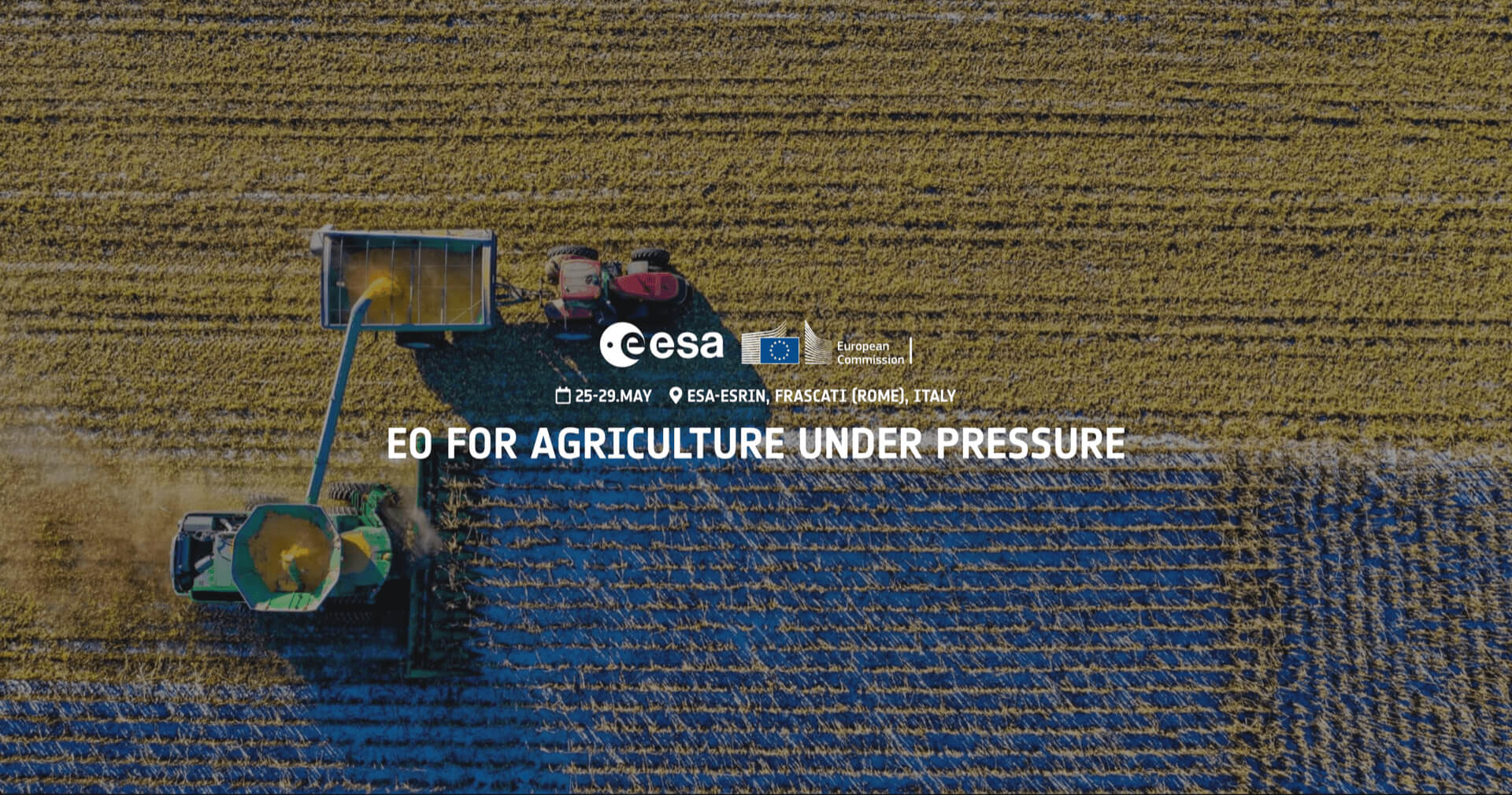Information:
Scientific Objectives
- Discuss the role of EO for supporting evidence-based decisions for improving food security at national to global scale
- Explore novel EO observation capabilities to advance the scientific basis to support resilience of agricultural productivity to climate change
- Discuss how to transfer EO science results into mitigation measures and alternative management tools for a sustainable, climate-neutral agriculture
- Exchange on latest developments of innovative algorithms and applications for agricultural monitoring including integration of in-situ data and modelling approaches
- Discuss EO applications for monitoring of agricultural practices, irrigation management, water productivity, fertilizer and crop protection optimization, impact assessment of crop diseases and natural hazards, crop yield estimations and forecasts and pasture monitoring
- Demonstrate the use of EO for policy relevant reporting and monitoring obligations such as the UN 2030 SDGs, the EU’s Green Deal, the Area Monitoring System of the CAP and national agricultural statistics
- Integrate innovative technologies such as Big data analysis, digital platforms, Artificial Intelligence, drones, crowd-sourcing and Internet of Things in agricultural monitoring
- Explore the potential of planned and future missions for food security and agriculture, e.g. the expansion and the next generation of the Sentinels, FLEX, new space and commercial satellite constellations
- Provide inputs to guide ESA scientific agenda in the agricultural sector including ESA’s FutureEO program and collaboration with RTD on Food Systems and climate adaptation
